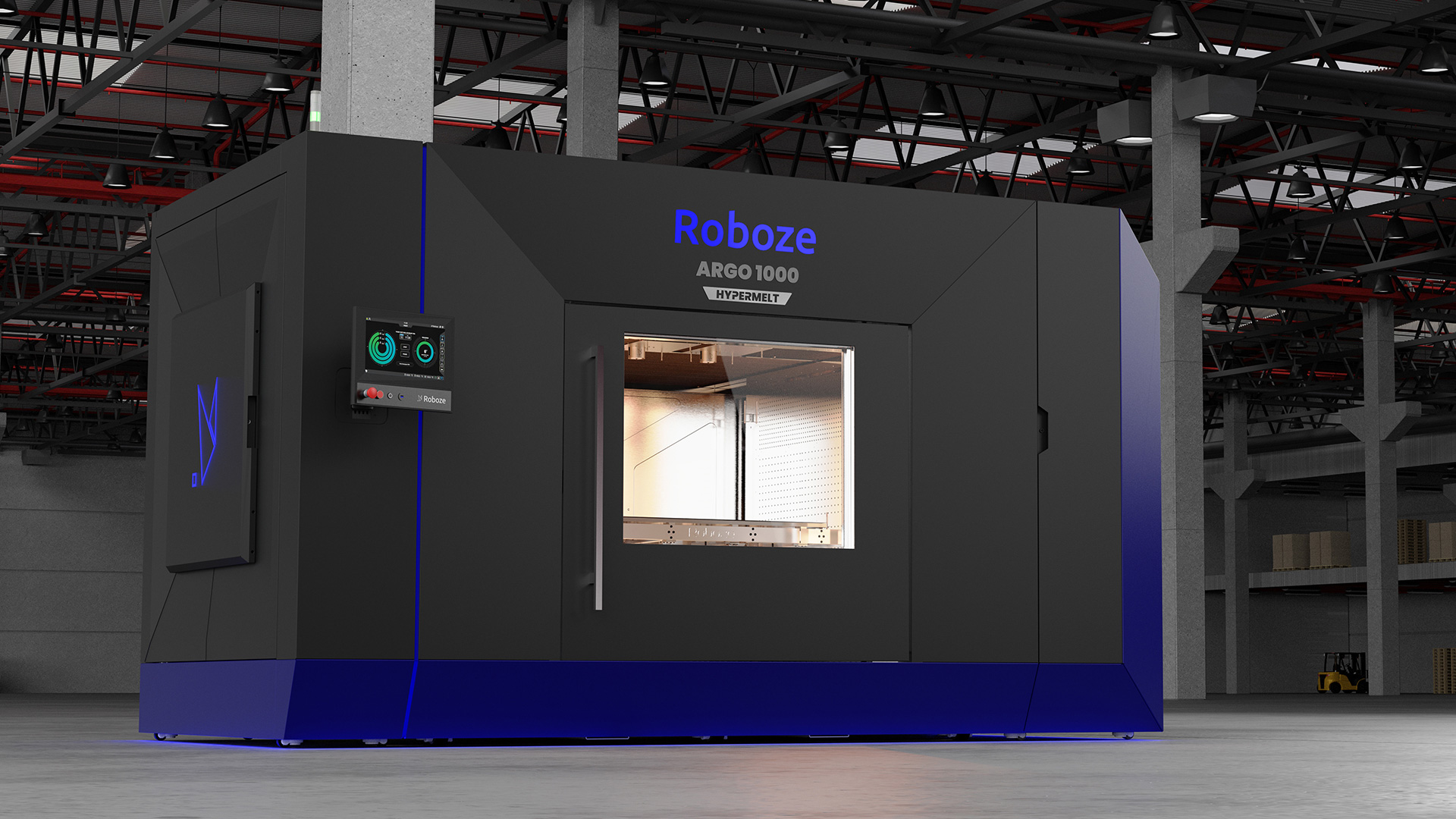
Large-Scale 3D Printing Materials: ULTEM™ vs PEKK
Material choice is a critical factor in the success of 3D printing, especially for producing large components in sectors like Aerospace, Railway, Automotive, and Energy. ULTEM™ and PEKK emerge as two of the most promising materials, each with specific properties that determine their applicability in different industrial scenarios. This article provides a detailed analysis of these two material options, highlighting their potential in relation to the use of Roboze's ARGO 1000 HYPERMELT for large-scale production.
ULTEM™ in 3D Printing: Features and Industrial Applications
ULTEM™, or polyetherimide, is an engineering thermoplastic known for its exceptional resistance to high temperatures and chemicals, as well as its fire resistance. These properties make ULTEM™ a suitable material for applications requiring durability and stability in harsh environmental conditions, such as those found in the Aerospace and Automotive sectors.
In particular, ULTEM™ is valued for its ability to withstand temperatures up to 180°C while maintaining excellent mechanical properties. However, its production through 3D printing requires equipment capable of handling high printing temperatures and a suitably heated build chamber to prevent material warping and ensure first layer adhesion.
The adoption of ULTEM™ in 3D printing, with advanced technologies like ARGO 1000's HYPERMELT, offers manufacturing companies unprecedented opportunities to optimize their supply chain. Integrating this solution in-house can significantly reduce production and procurement times, as the ability to print large components on-demand eliminates the need for large inventories and reduces dependence on external suppliers.
For companies in the Aerospace or Automotive sectors, where the production of large components with high-performance materials is crucial, this means being able to respond more quickly to market needs and customization requests. Moreover, the ability to produce complex parts in a single piece further reduces assembly times and potential points of failure, enhancing the quality and reliability of the final product.
The use of ULTEM™ through systems like ARGO 1000's HYPERMELT also allows for greater flexibility in supply chain management, with companies able to quickly adjust production according to demand fluctuations without the delays typical of traditional manufacturing. This aspect is particularly valuable in a global context characterized by economic and logistical uncertainties.
PEKK in Large-Scale Production
PEKK (polyetherketoneketone) offers a combination of mechanical, thermal, and chemical resistance comparable to ULTEM™ but stands out for some key properties. Its main advantage is dimensional stability under high temperature conditions, making it ideal for applications requiring maximum precision and reliability.
Discussing PEKK in combination with the ARGO 1000 HYPERMELT solution highlights a further qualitative leap in companies' ability to transform their supply chain. 3D printing large components in PEKK not only opens up new levels of strength and durability for applications in sectors such as Energy and Railway but also leads to a drastic reduction in lead times.
The decentralization of production, made possible by 3D printing, means that companies can reduce transportation costs and waiting times by producing parts locally or directly on-site. This radically changes the approach to maintenance and the procurement of spare parts, allowing for a more efficient and sustainable inventory management.
Furthermore, adopting solutions like the ARGO 1000 HYPERMELT for large-scale production of PEKK components enables companies to leverage mass customization, offering products that can be tailored to the specific needs of each customer without significantly affecting costs or production times.
ARGO 1000 HYPERMELT - The New Era of Customized Production
The introduction of Roboze's ARGO 1000 HYPERMELT marks a significant step in addressing the challenges associated with 3D printing large components using advanced materials like ULTEM™ and PEKK. The machine is designed to optimize the material melting and deposition process, ensuring uniform and precise construction of parts, crucial in critical industrial applications.
The ability to produce large components locally, with reduced time and costs, not only enhances production efficiency and supply chain flexibility but also paves the way for new opportunities in innovation and customization.
In this landscape, choosing the right material and adopting the most appropriate production strategy become strategic decisions that can significantly impact a company's success. This is why it's essential to rely on experienced partners who can provide consultancy and support based on years of experience and a deep understanding of materials and 3D printing technologies. Roboze boasts a team of experts ready to guide you in selecting the most suitable material and defining the best production logic for your specific needs.
Whether you're exploring ULTEM™, PEKK, or other strategic solutions, we can help you navigate the complexities of 3D printing to maximize the benefits for your company. Contact us at info@roboze.com or fill out the dedicated form.
Begin your journey towards innovation in production with Roboze today, and fully leverage the potential of 3D printing to transform your supply chain and your business.
